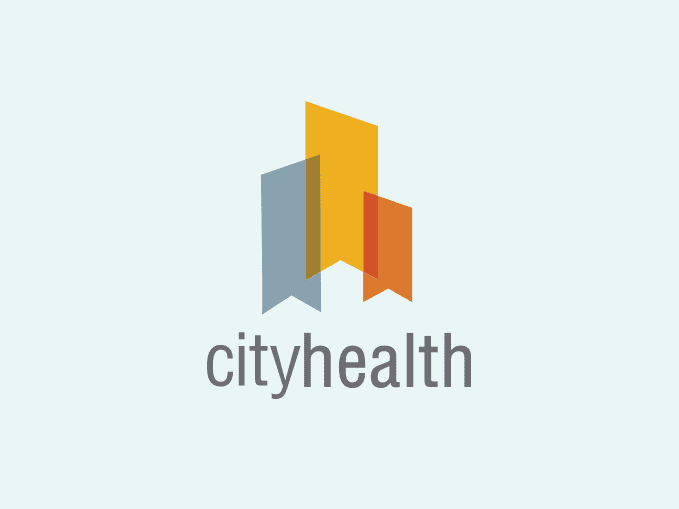WASHINGTON, D.C. – CityHealth, an initiative of the de Beaumont Foundation and Kaiser Permanente, released a new report today showing that more cities are adopting strong healthy food procurement policies to fight obesity and boost nutrition.
In the new assessment, CityHealth awards gold medals for healthy food procurement to nine cities: Boston, Long Beach, Los Angeles, New York, Philadelphia, San Antonio, San Francisco, Seattle, and Washington, D.C.
Four cities advanced their healthy food procurement medal status from 2018 to 2019. San Antonio moved from receiving no medal in 2018 to achieving gold in 2019, Seattle moved from bronze to gold, Denver moved from no medal to silver, and Austin moved from receiving no medal to bronze. That brings the total number of medals among the 40 cities assessed on this policy to 9 gold, 6 silver and 4 bronze. Twenty-one cities did not have strong enough policies in place to earn a medal, or had no healthy food procurement policy in place.
“Providing healthy food and drinks is clearly a win-win for localities. This is about city leaders using their purchasing power to create a thriving population while helping local businesses grow,” said Shelley Hearne, DrPH, President of CityHealth. “City procurement policies are a particularly great tool to fight the obesity epidemic because local governments are often among the largest employers and food purchasers in a community, so they can make a serious impact with this revenue-neutral policy. Every city in America should have this solution in place.”
CityHealth provides leaders with a package of nine evidence-based policy solutions that have the potential to help millions of people live longer, better lives in vibrant, prosperous communities. CityHealth awards gold, silver, bronze, or no medals annually in each of the nine CityHealth policies to the nation’s largest 40 cities, based on the quantity and quality of their policies. One of these policy solutions is healthy food procurement, which gives cities the opportunity to leverage their purchasing power to improve their residents’ health.
CityHealth’s 2019 Healthy Food Procurement Medals
* = medal increase from 2018
Gold
Boston
Long Beach
Los Angeles
New York
Philadelphia
San Francisco
Washington, D.C.
San Antonio*
Seattle*
Silver
Albuquerque
Chicago
Kansas City
Louisville
San Jose
Denver*
Bronze
Baltimore
Houston
Sacramento
Austin*
No Medal
Atlanta
Charlotte
Columbus
Dallas
Detroit
El Paso
Fort Worth
Fresno
Indianapolis
Jacksonville
Las Vegas
Memphis
Mesa
Milwaukee
Nashville
Oklahoma City
Phoenix
Portland
San Diego
Tucson
Virginia Beach
Obesity rates have skyrocketed in the United States over the past two decades, creating significant long-term effects on workforce wellness and economic vitality. In response, many cities are leveraging policies that improve opportunities for people to eat healthy and be more active. Strong healthy food procurement policies ensure that healthy options are available in city owned or controlled places, and aid city residents in making food choices that will help them achieve and maintain a healthy weight. CityHealth’s assessment of healthy food procurement policies includes whether the city has nutrition standards in place, what percentage of foods and beverages sold on city property abide by those nutrition standards, and whether all types of city food and beverage contracts are covered. CityHealth’s criteria allow cities to tailor standards to their unique cultural and population needs.
WHERE HEALTHY FOOD SALES CAN HAPPEN
· Parks
· Sports arenas
· City buildings
· Airports
· Public hospitals
· Senior centers
· Recreation centers
· Homeless shelters
· Child care centers
· Correctional facilities
According to the Centers for Disease Control and Prevention (CDC), in 2017, more than one-third (39.8%) of U.S. adults were obese, and two-thirds were considered to be overweight or obese.[i][ii] Obesity-related conditions include heart disease, stroke, type 2 diabetes, and certain types of cancer — some of the leading causes of preventable death.[iii]
Obesity rates of this magnitude increase health care costs for every American, as well as private and government organizations. Health care costs associated with obesity now total $190 billion every year, adding up to one-fifth of all health care spending.[iv] Every year, cities with the highest obesity rates pay an estimated $50 million in costs associated with obesity and related chronic conditions.[v] Even cities with comparatively low obesity rates suffer from millions of dollars in preventable health care costs. Yet in the parks, recreational facilities, and workplaces that cities manage, many municipal vendors almost exclusively offer calorie-dense, nutrient-poor foods of low quality, running counter to cities’ goals to cultivate a healthy, thriving population.[vi]
About CityHealth
CityHealth, an initiative of the de Beaumont Foundation and Kaiser Permanente, advances a package of evidence-based policy solutions that will help millions of people live longer, better lives in vibrant, prosperous communities. CityHealth regularly evaluates cities on the number and strength of their policies. www.cityhealth.org
[i] Adult Obesity Facts. U.S. Centers for Disease Control and Prevention. https://www.cdc.gov/obesity/data/adult.html (April 24, 2019).
[ii] U.S. Centers for Disease Control and Prevention Center for Health Statistics, Obesity and Overweight FastStats, https://www.cdc.gov/nchs/fastats/obesity-overweight.htm (April 24, 2019).
[iii] U.S. Centers for Disease Control and Prevention, Adult Obesity Facts, https://www.cdc.gov/obesity/data/adult.html (April 24, 2019).
[iv] Cawley J, et al. “The Medical Care Costs of Obesity: An Instrumental Variables Approach.” Journal of Health Economics 2012, vol. 31, pp. 219-230.
[v] Dan Witters, The Cost of Obesity to U.S. Cities, Gallup Business Journal. January 27, 2011
(https://news.gallup.com/businessjournal/145778/cost-obesity-cities.aspx).
[vi] Katherine Bishop, Center for Science in the Public Interest, “Vending Contradictions: Snack and Beverage Options on Public Property,” 2014. https://docplayer.net/15758389-Vending-contradictions-snack-and-beverage-options-on-public-property.html
CONTACT Liz Voyles, liz@www.cityhealth.org, 202-297-9641




